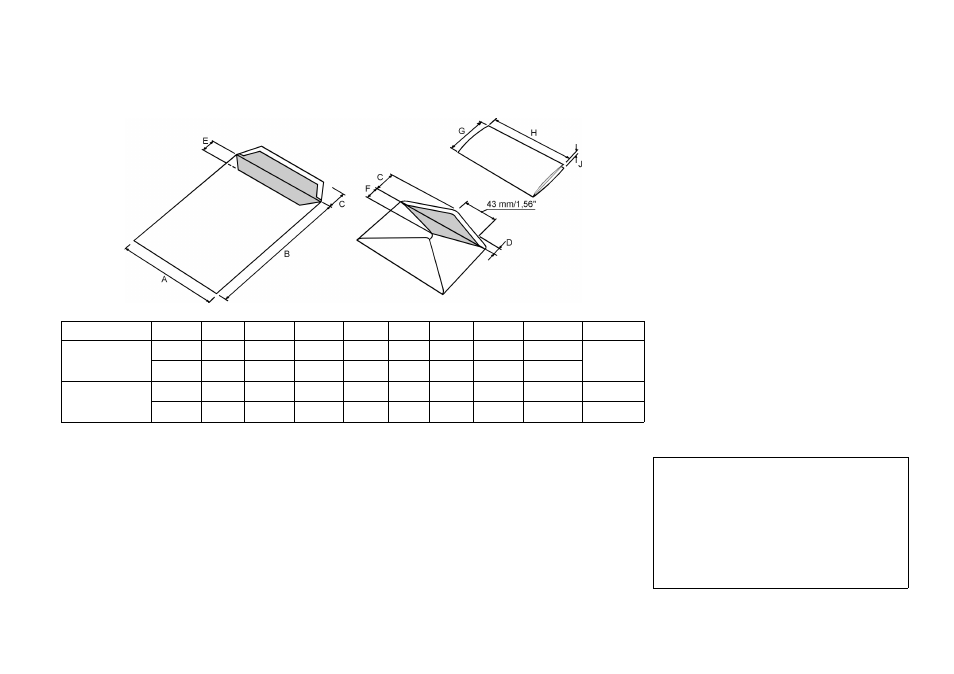Formax 6900 Series User Manual
Page 40

39/40
39/40
39/40
39/40
Envelope and insert specifications
Envelope and insert specifications
Envelope and insert specifications
Envelope and insert specifications
Maximum insert specifications are based on single sheets. When multiples are handled, more room inside the envelope is needed
depending on application.
Manufacturer: Neopost Industrie BV
Address:
De Tijen 3, 9201 BX Drachten
The Netherlands
89
.4
1.0
2
in
dex A
- 0
6/
02
Speci
fic
ati
ons
and
de
sign ar
e s
ub
jec
t to chanc
he wi
thout
pr
io
r noti
ce.
A
A
A
A
BBBB
CCCC
D
D
D
D
EEEE
FFFF
G
G
G
G
H
H
H
H
JJJJ
minimum size
mm
140
90
32
32
10
20
80
130
45 g/m2
inches
5.5
3.55
1.25
1.25
0.4
0.8
3.15
5.11
maximum size
mm
255
345
90
90
50
70
B-5
A-12
5
inches
10
13.6
3.5
3.5
1.95
2.75
B-0.2
A-0.47
0.2
Remarks
• If J exceeds 2 mm (0.08”) then the maximum size of G and H should be B-15 (0.6”) respectively A-25 (1”).
• The specification of the paper handling equipment is often wider than that of the envelopes and documents handled. The
condition of material handled will limit the specified environmental conditions.
• We recommend that materials to be handled are stored at a temperature of 20°C (68°F) with a relative humidity factor of 50%.
If difference in temperature occurs between store room and mailing area, the material has to stored near the machine at least 24
hours before use.
Note: this equipment has been tested and found to comply
with the limits for class A digital device, pursuant to Part 15 of
the FCC Rules. These limits are designed to provide
reasonable protection against harmful interference when the
equipment is operated in a commercial environment. This
equipment generates, uses, and can radiate radio frequency
energy and, if not installed and used in accordance with this
instruction manual, may cause harmful interference to radio
communications. Operation of this equipment in a residential
area is likely to cause harmful interference in which case the
user will be required to correct the interference at his own
expense.
